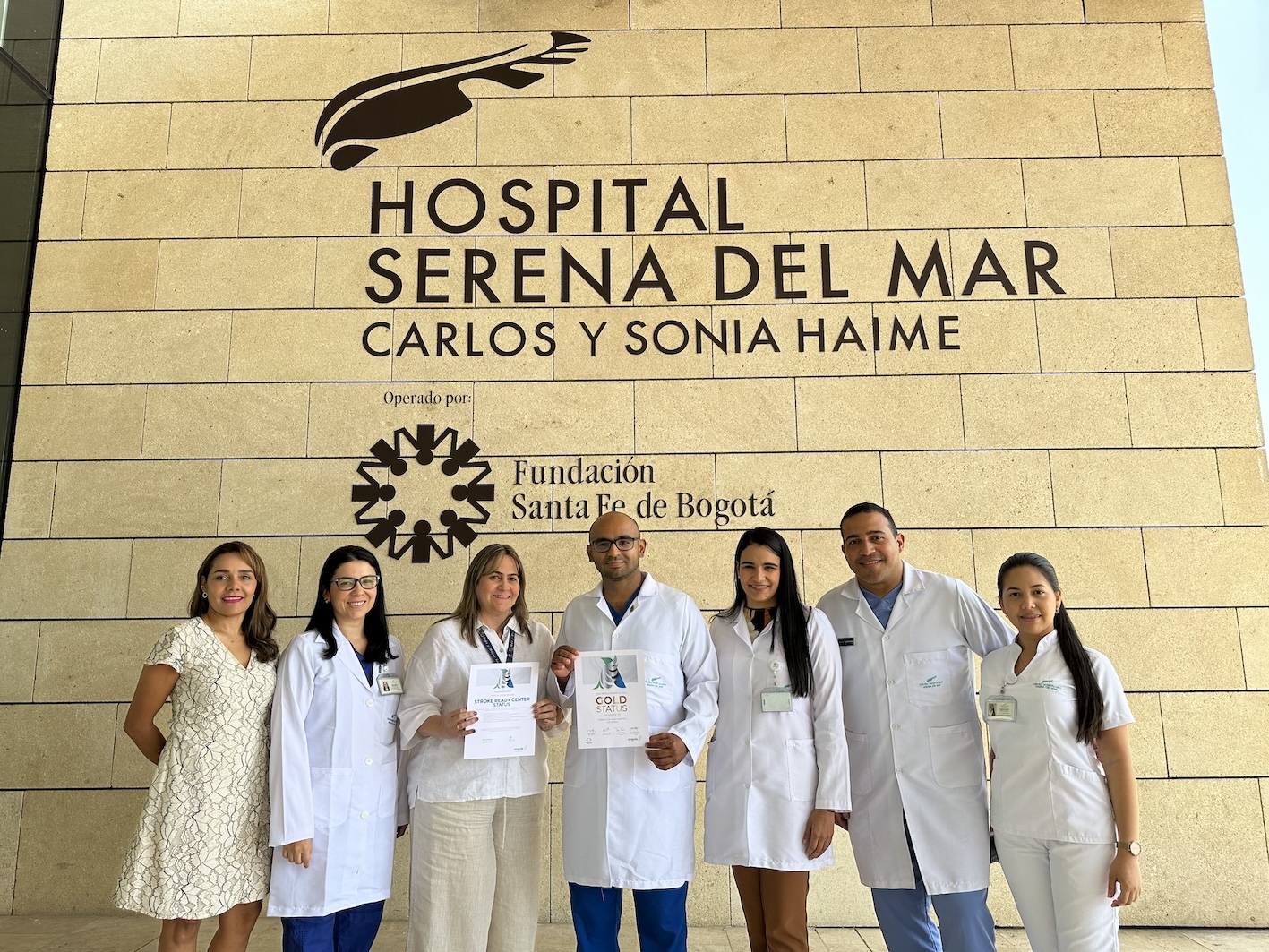In Central Tuscany, a five-time Diamond Award-winning hospital inspired other hospitals in the region to become faster, more efficient and accurate.

The year 2020 was almost over when a patient was admitted to a hospital in the region of Central Tuscany. The emergency services and the hospital activated the stroke code when this patient called on his own exhibiting slurred speech. However, his symptoms had almost disappeared as he arrived at the hospital in the ambulance.
The untrained eye could have disregarded the patient or even considered his symptoms part of a transient event. Fortunately for this atypically young stroke patient, the hospitals of his region had been focusing on improving their stroke care pathway from start to finish. They detected the ischemic lesion and administered the correct treatment, which led to his complete recovery and a secondary prevention therapy.
Central Tuscany is considered one of the biggest areas in the region with 1.6 million people. It is known for its beautiful landscapes and its art and wine culture, but now we know it also holds 9 primary stroke centres and one comprehensive centre. It reported 2200 admitted stroke patients in 2019 and not all hospitals were at the same level when it came to stroke management.
The Angels Initiative and the Italian Stroke Society (ISO) were able to see this when, in March 2020, four of these hospitals joined the national project called Monitor ISO. This project was structured to reinforce Quality Monitoring, which ultimately demonstrated the areas of improvement and need for the best practices in the overall region and its specific hospitals.
In just a matter of months, 3 new hospitals joined the 5-time Diamond Status Angels ESO Award winner, Santa Maria Nuova Hospital, achieving Gold Status Awards.

Santa Maria Nuova began their Angels journey in 2018. They performed many stroke pathway simulations that helped them to clearly identify what to change. They initially had a door-to-needle (DTN) time of 75 minutes and were able to reduce it exactly by half after implementing these changes. When Monitor ISO showed the project’s results, they were the only hospital in Central Tuscany to report a median DTN time of under 30 minutes.
How did these three new hospitals become faster, more efficient and accurate? By not letting any negative results or a pandemic prevent them from putting in the extra effort.
Because of the pandemic all meetings needed to be converted to virtual formats, including virtual clinical case studies, area meetings, ‘Angels Days’ events and the use of the Angels website tools such as Body Interact. During the first virtual meeting with 12 physicians from 8 hospitals, the region agreed on a few objectives:
1 Create a stroke network with Angels as an official player in it, with Drs Palumbo and Konze taking the lead.
2 Be comprehensive and inclusive in the action plan to change protocols according to the new guidelines by the ISO.
3 Provide continuous stroke pathway optimization guidance, which includes the standardization that gives the stroke teams an approach to treat even the most particular and special patients.
4 Put value and quality into the webinars to involve all multidisciplinary team members and make the most of training time.
This model goes beyond the hub and spoke. In fact, there is not only the unidirectional connection from the spokes to the hub but also between the individual spokes in order to create a horizontal, collaborative and joint network, covering the whole territory. "The keywords that characterize us are 'sharing, training, information and participation' and together with Angels we will continue our journey to give life a chance for all the stroke patients,” said Dr Pasquale Palumbo

Meeting the objectives was not only visible with the new awards winners, but the stroke network team received great feedback from participants. This motivated them to continue in this path in the future seeing it is now truly a regional project and not just isolated meetings, as Dr Angela Konze from Santa Maria Nuova Hospital comments:
"By now, our healthcare company in Central Tuscany has been collaborating with the Angels Initiative since 2018 with the aim of continuously improving the quality of treatment for stroke patients. During the year of the pandemic, the training of multidisciplinary stroke teams has never stopped offering various online training events. Thanks to a consolidated stroke pathway developed together with the Angels Initiative, all patients – despite the critical situation in COVID time – received the same rapid access to diagnostics and therapy and we have even improved our median door-to-needle time."

Inspired by their fellow stroke centres, in the second edition of Monitor ISO which took place in November, another 4 stroke centres participated by registering their data. As a result, almost the entire region is now committed to monitoring the quality of their stroke care.
When commenting on the relative ease with which their hospital manages even “complex” cases like the case mentioned at the beginning of this article these days, Dr Angela Konze said: “We have to act differently, we are an Angels hospital.”
We hope this mindset and their story inspires others to reach the high standards that Angels Hospitals around the world live by.


